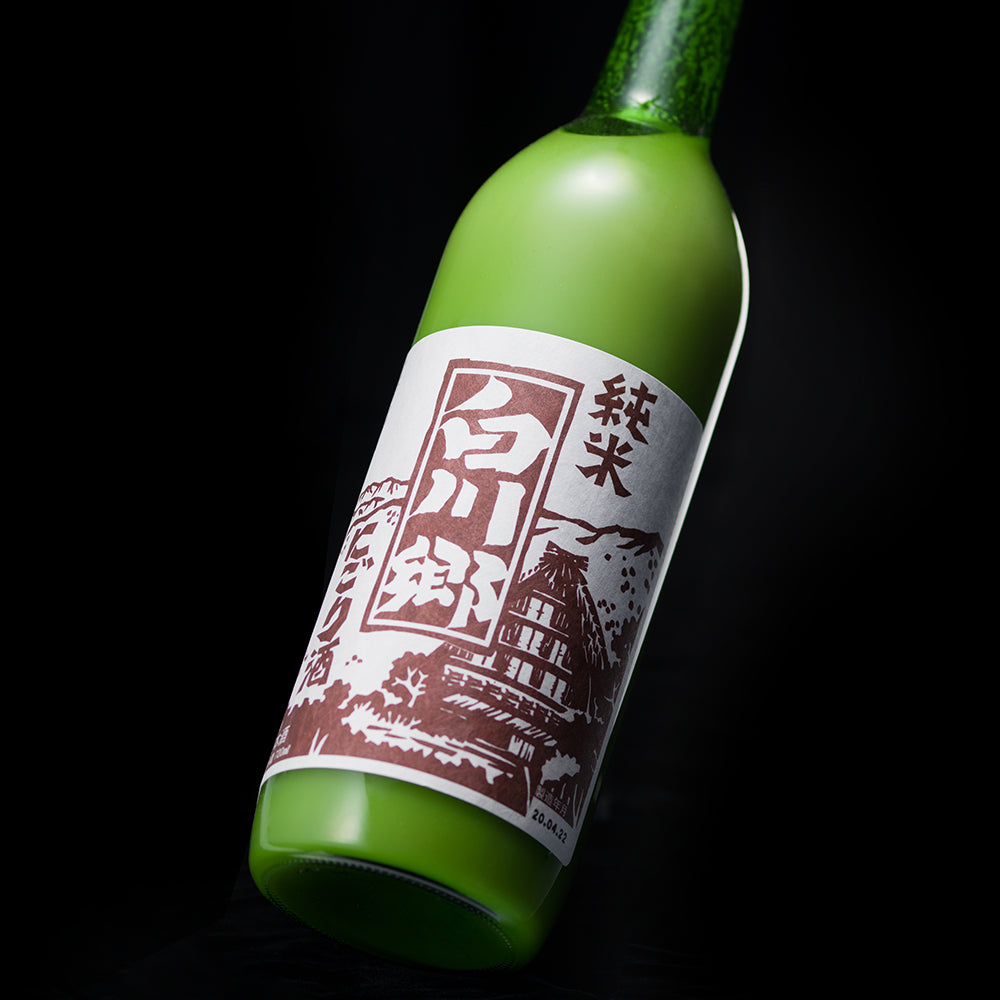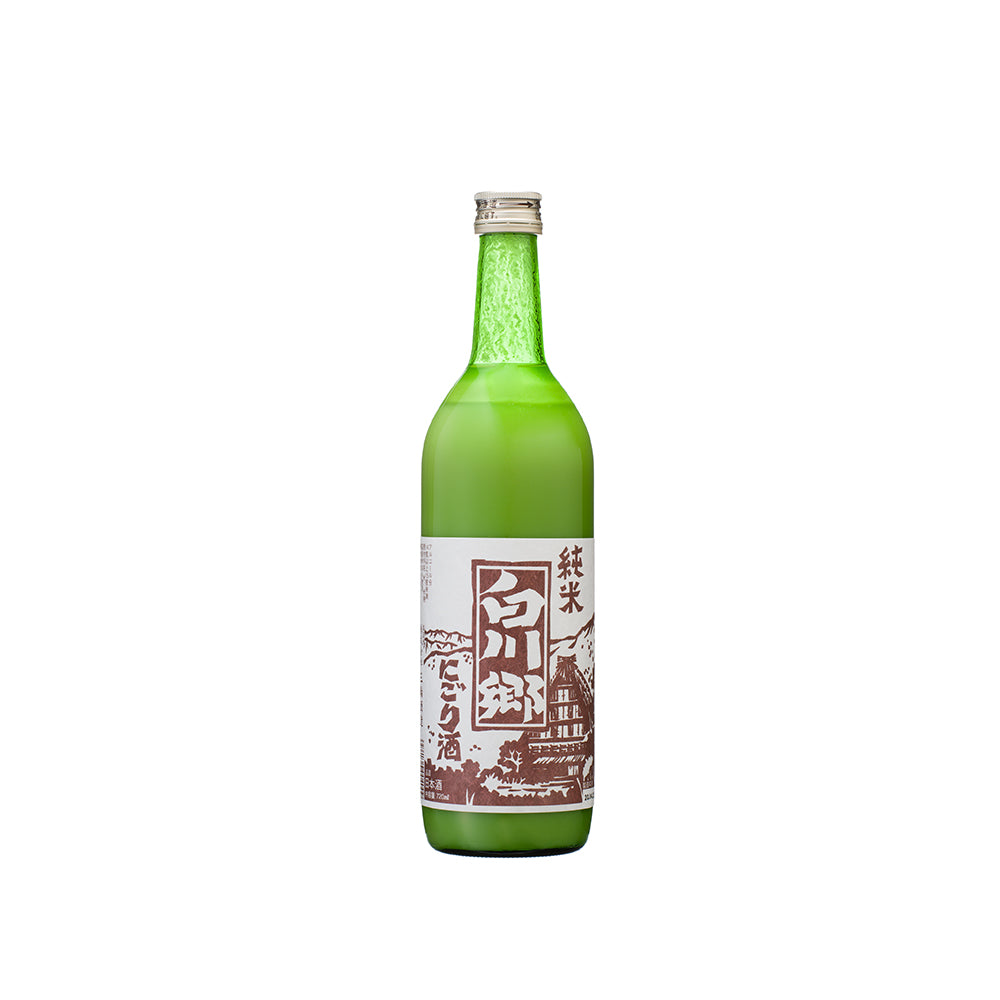-
 >
>
- Product list >
- Shirakawago Cloudy Junmai undiluted without charcoaled (720ml)
Shirakawago Cloudy Junmai undiluted without charcoaled (720ml)
詳しく見る
- *All prices shown are the product prices from the Japanpage:.
- *Product price can be shown in multiple currencies as reference values.
- *Payment should be made in Japanese yen.
- *After filling in delivery address, grand total (product price + shipping cost (packing + shipping + insurance) +tariffs & taxes) will be shown on the shipping cart page.
- *All prices shown are the product prices from the Japanpage:.
- *Product price can be shown in multiple currencies as reference values.
- *Payment should be made in Japanese yen.
- *After filling in delivery address, grand total (product price + shipping cost (packing + shipping + insurance) +tariffs & taxes) will be shown on the shipping cart page.
"Shirakawago Cloudy Junmai, undiluted without charcoaled" is Japan's richest unfiltered "nigorizake"" produced by a sake brewery specializing in nigorizake. This sake was originally produced for the local traditional "Doburoku Matsuri" festival, and it is one of the very few Junmai nigorizake in Japan that use around twice the amount of sake rice for brewing as compared to regular sake. This amount of sake rice is comparable to Daiginjo which use less than 50% polished rice, and the secret to its delicious flavors lies in its brewing process that uses only high-quality sake rice. By drawing on the production method of Doburoku, this sake's unfiltered quality gives it an exceptionally rich cloudiness, allowing you to savor its creamy flavor. This product of the highest quality gives you the chance to indulge in its rich content and the natural flavors of rice all year round. It can be served cold at a temperature of around 10℃, or on the rocks in the sweltering summer heat. It is the ideal sake for pairing with dishes containing powerful seasonings as well as baked goods.
Pairing food proposed from Vendor
Ham (prosciutto and jamón), dishes with white sauce and hollandaise sauce, grilled eel, steak (with gravy), roast beef, blue cheese
About "Shirakawago"
Shirakawago" is a "gassho-zukuri" thatched-roof village that has been designated as a UNESCO World Heritage Site. The brewery had received a request to produce "Doburoku," a sake that has been used at local festivals for around 1300 years, that can be sold all year round. This led to the creation of nigorizake which is similar in quality. The brand is committed to preserving the use of the best ingredients and the production method that brings out the flavors of nature, and aims to share the culture of nigorizake with the next generation.
Recommended temperature
- Atsukan (50 - 55℃)
- Jokan (45 - 50℃)
- Nurukan (30 - 40℃)
- Room temperature (15 - 20℃)
- Hanabie (10℃)
- Yukibie (5℃)
Type


Tag
Appearance
-
Clarity
Transparency
Hazy
-
Colour
Colorless
Dark brown
-
Intensity
Water
Deep
Nose characteristics
-
Intensity
Low
Strong
Taste characteristics
-
Light / Body
Light
Body
-
Sweet / Dry
Sweet
Dry
-
Simple / Complexity
Simple
Complexity
-
Acidity
Low
High
-
Umami
Low
High
-
Finish
Low finish
Long finish
Aroma and flavor
Detailed information
| Volume | 720ml |
|---|---|
| Size (L W H) | 7.8 x 7.8 x 28.5 cm |
| Weight | 1.2kg |
| Ingredients | Rice, Rice koji, Water |
| Region | Gifu |
| Alcohol content | 14%vol. |
|
Sake Meter Value
|
-25 |
|
Acid level
|
+2.0 |
|
Polishing ratio
|
70% |









